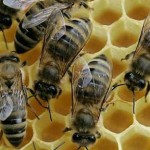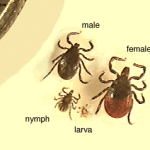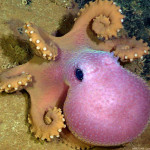This week’s podcast considers the significance of the increased numbers of pet-related electronic devices on the market. In addition to those that shock, blast with irritating scents, or toss food at pets, there are those that allow obsessive folks to monitor everything their pets in order to…what? I’m not sure. No, I’m not opposed to technology. Those who followed the BeeBee Chronicles may recall that I didn’t hesitate to get my brain-damaged, deaf, and significantly visually impaired corgi a vibrating collar that also lit up so I could communicate with and keep track of her outside. (You can barely
Read more →For those of you unfamiliar with bond jargon, the first acronym in the title of this podcast is the reverse of the more familiar second, which stands for human-animal interactions. The physiological effects animals have on humans is of much less concern for many than the effects of humans on animals.
Read more →One of the consequences of training methods that don’t take into account what and how dogs learn is that they may lose skills we never realized they had. An example of such a display is the “Pay attention to what I’m paying attention to” mimicking display, the subject of this podcast.
Read more →What do fairy wrens and mergansers have in common? In two quite different ways, each may provide insights into animal and human communication.
Read more →When I was editing this podcast, I was struck by how often we impose similarly unrealistic want-lists on companion animals too. In both cases, we want an animal who fills our definition of what is all-positive for us. We want the animals to be tough enough to handle all the environmental and other assaults we throw at them at the same time as we want them to be compliant and friendly regardless how unreasonable our demands. That there are now people working on robotic animals of one sort or another–including pollen-collecting drones–suggests that more people are realizing our demands
Read more →The great majority of the animals labeled as vectors as well as any potentially pathogenic micro-organisms they carry superficially may appear vulnerable to our technology. But it would be foolish to assume that the combination of their shorter life cycles and much (!) longer residence on the planet than ours hasn’t given them survival skills beyond our wildest dreams.
Read more →This week’s podcast considers the topic of parental sacrifice, specifically that of the stunning and devoted Graneledone boreopacifica, an octopus whose parental behavior would put most humans to shame.
Read more →Another concept that often arises in the animal intelligence debate is the role of instinct. Unfortunately and like a lot related to animal behavior, there’s little agreement regarding what the term means and whether all animals or only all non-human animals display instinctive behaviors. Consequently I’ve adopted a basic rule that’s simplified my life greatly…
Read more →This week’s podcast discusses two subjects that increasingly capture the interest of scientists: self-medication in animals and parasites. I suspect that some people would consider it a tragedy that these natural medications only eliminate the majority of the parasites.
But is this necessarily true?
Read more →Now that researchers no longer risk their careers by studying once taboo subjects like animal intelligence, the amount of literature on the subject increases daily. This even includes studies that challenge the notion that our bigger brains make us smarter.
Read more →







